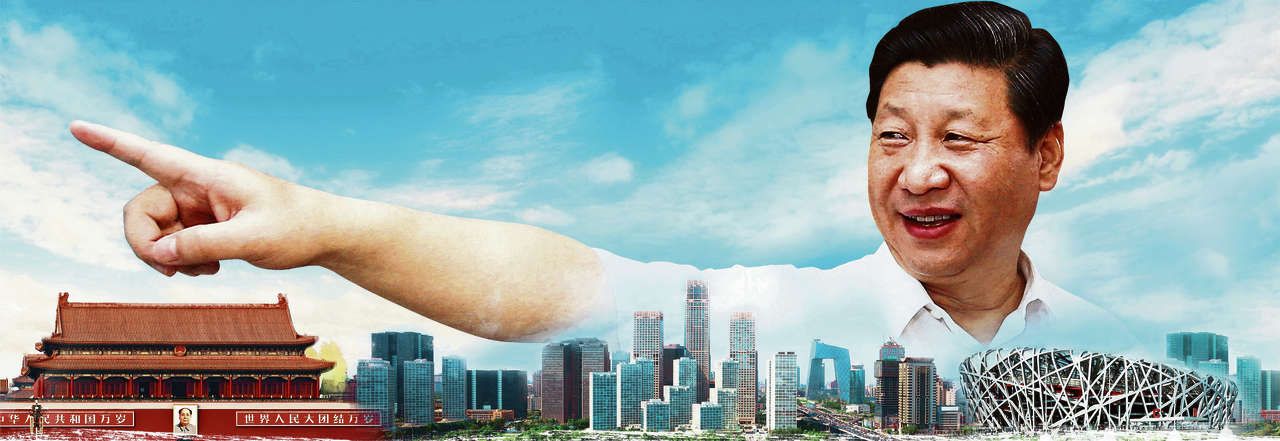
President Donald Trump announced that his administration will impose global tariffs of 25% on steel and 10% on aluminum, signaling the beginning of the end of the rules-governed global trading system created by the US. Protectionism is on the rise not just in the States but also in Europe and elsewhere, carried on the waves of populism. A “beggar-thy-neighbor” policy will further fragment global governance and drive the world into chaos and disorder. Globalization and global governance is under siege.
As the world economy recovers and many countries pursue economic structural reforms, trade wars looms large on the horizon propelled by protectionism and populism. What is more alarming is the unprecedented fact that the US, the pillar of the rules-based multilateral trading and investment order is now leading the charge for protectionism under the alluring banner of “America First”.
Another alarm bell is ringing in Europe where populism spreads quickly and is being intertwined with the mainstream. Sweden, Italy, Poland, Hungary, and even Germany, the main engine of European growth, are all now under the spell of populism. The Alternative for Germany party made it into the Bundestag for the first time. Many politicians embrace populism either voluntarily or simply for survival. According to some research institutes, the populist vote in EU states was on average 8.5% in 2000 and 24.1% in 2017. The quantitative increase has induced a qualitative change in domestic and EU-wide politics, especially in the way people view global governance issues like immigration and trade.
Nevertheless the world is not totally dark and the forces of free trade and globalization remain strong. China stands firm and holds the banner of free trade high with President Xi Jinping speaking eloquently on many important occasions, including at Davos in 2017, advocating free trade and globalization and opposing protectionism and trade wars. The TPP-11 (which doesn’t include the US) has signed “the Comprehensive and Progressive Agreement for Trans-Pacific Partnership”. China and ASEAN are actively promoting early conclusion of the negotiation on “Regional Comprehensive Economic Partnership”, which covers almost 50% of the world’s population and 24% of global GDP.
The world stands at a crossroads. Will global governance and the multilateral order survive the combined onslaught of protectionism and populism? The future will, to a great extent, be determined by how major powers deal with them.
First, macro policy consultation and coordination needs a boost through multilateral platforms like the G20, the UN, and APEC, as well as through regular bilateral consultation and negotiation. At the G20 Summit of 2016 in Hangzhou, China made a momentous decision, calling on the G20 and other major economies to begin macro-economic policy coordination. The international community can’t afford to delay any more. China has been proactively trying to defuse trade wars with the US, including through the high-level dialogue mechanism set up by President Xi and President Trump, even though China is repeatedly at the receiving end of American protectionist measures.
Second, concerted action by the international community, especially by major economies, to maintain and strengthen the rules-governed multilateral trade and investment order is a must as the WTO’s survival is hanging by a thread. Inaction can’t be tolerated. Greater efforts should be made by governments, businesses, media, and other interested parties. In trade and investment, the US-centered alliance is not working, nor is it even relevant as the new American tariffs on steel and aluminum shows. The line will be drawn with those who are disruptive of rules-based governance on one side and those who are supportive of it on the other.
The US under Trump will for some years continue to backpedal on free trade and global governance, and will no longer be willing to provide necessary “global commons”. The world should muster enough political will and energy, with or without the US, to promote multilateralism and counter protectionism. With a long term perspective, the isolationism and protectionism will not serve the interests of the US and it will eventually come around. Nobody knows how long it will take, yet we must persist in persuading the US to get back on the right track of free trade and rules-based global governance.
Third, China, as one of the major beneficiaries of the current global governance architecture, can and should continue unswervingly on the path it has chosen and spare no efforts in promoting global free trade and rules-based governance by implementing initiatives like the “Belt & Road” and “a Community of Shared Destiny” as proposed by President Xi, so that globalization will not only bring about greater benefits for all participants but also more equal, just and fair distribution of those benefits.
Fourth, the global governance we have now is not easy to come by and should not be abandoned simply to suit narrow-minded “national interests.” Moreover, global governance has been hijacked by the US’ geopolitical agenda and entanglements. Security and economics are two interconnected pillars of global governance. Economic globalization and the ever-expanding world market have not been accompanied by globalized, cooperative, collective security arrangements – these are still centered on US-led military alliances.
Another impediment to well-functioning global governance comes from an artificial divide along ideological lines with “liberal democracy” on one side and “illiberal countries” on the other. This often gets in the way of cooperative governance. In reality, it is the belief in a “clash of civilizations” that provides the theoretical foundation for Western civilization led by the US to place itself above other civilizations and to interfere in others’ internal affairs. That impediment runs deep in the psyche of Western countries and is difficult to overcome.
In sum, it is both the best time and worst of times for global governance. Opportunities and challenges lie side by side. A new world is emerging and is being shaped by what major powers will do, or not do, in the years to come.



